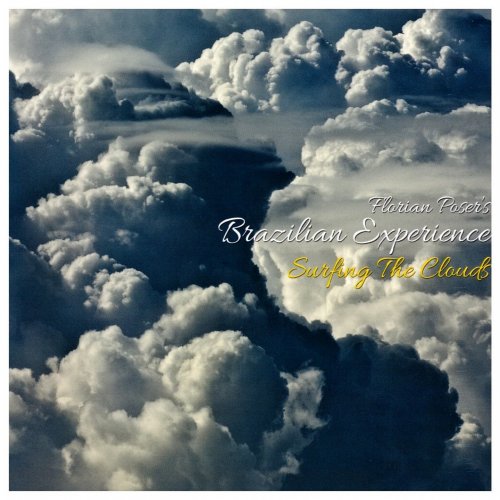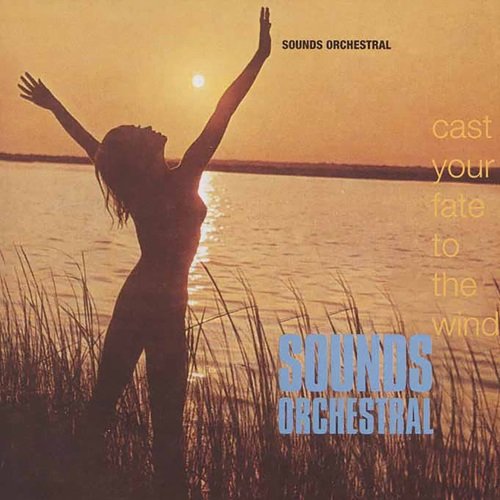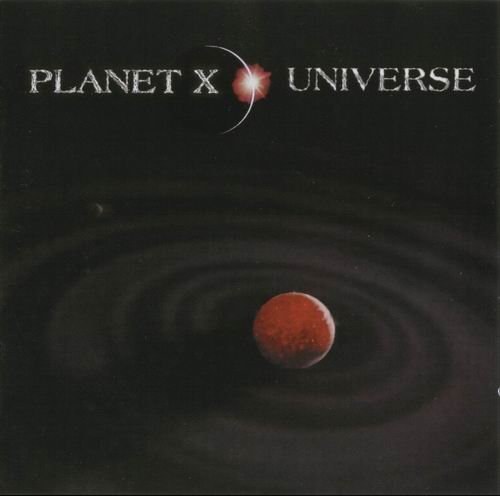Stanisław Daniel Kotliński, Simon Zhu, Marco Balderi, Maciej Kułakowski - Sir Paolo Tosti at the British Royal Court (2025)
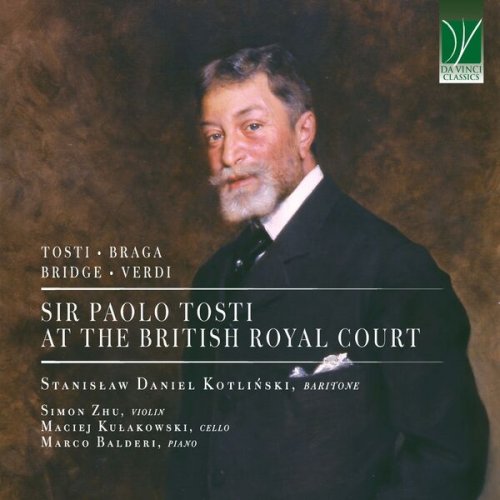
Artist: Stanisław Daniel Kotliński, Simon Zhu, Marco Balderi, Maciej Kułakowski
Title: Sir Paolo Tosti at the British Royal Court
Year Of Release: 2025
Label: Da Vinci Classics
Genre: Classical Piano
Quality: flac lossless (tracks)
Total Time: 01:14:12
Total Size: 309 mb
WebSite: Album Preview
TracklistTitle: Sir Paolo Tosti at the British Royal Court
Year Of Release: 2025
Label: Da Vinci Classics
Genre: Classical Piano
Quality: flac lossless (tracks)
Total Time: 01:14:12
Total Size: 309 mb
WebSite: Album Preview
01. Miniatures, H.87-89: No. 7, Valse
02. Non t'amo più
03. Sogno
04. Penso
05. Quattro meditazioni lugubri: No. 1, Prima meditazione
06. Tormento
07. Ninon
08. Chanson de l'Adieu
09. Romanza senza parole
10. Tristezza
11. Donna, vorrei morir...
12. Ridonami la calma! Preghiera
13. Valzer in F Major
14. Vorrei morire
15. Malìa
16. La serenata
17. Romance
18. A Vucchella
19. Marechiare
20. Addio
21. La Serenata
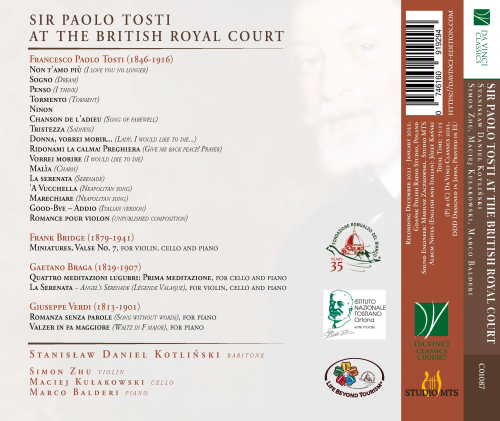
A Great Italian at the British Royal Court
The year 2021 marked the 175th anniversary of the birth of one of Italy’s most brilliant composers – Sir Paolo Tosti – an innovator and moderniser of the Italian style of chamber vocal music. The anniversary celebrations culminated in a festive concert, held under the patronage of the Istituto Nazionale Tostiano and entitled Gran Galà Tosti. This took place in December 2021 at the Teatro Tosti in Ortona, the composer’s birthplace. The principal performer of the evening was the distinguished Polish bass-baritone Stanisław Daniel Kotliński, who for many years has served as a “cultural ambassador” for Tosti’s work, performing it with passion across the world. He was joined on this occasion by the Italian conductor and pianist Marco Balderi, and two young prize-winners of international string competitions: the German violinist of Chinese descent Simon Zhu, and the Polish cellist Maciej Kułakowski. The same musicians appear on this recording, made at the Polish Radio studios in Gdańsk.
Sir Francesco Paolo Tosti (1846–1916), counted among the most eminent composers of his generation, was highly esteemed by many of his influential contemporaries, including Verdi and Puccini. He also enjoyed friendships within the British royal family, notably with Queen Victoria, who, over a period of sixteen years (1882–1898), devoted many pages of her private diary to reflections on the intricacies of Tosti’s work.
In 1889 Tosti married Miss Bertha Verrue, a Belgian-French singer eight years his junior, who proved to be a loving and understanding life companion. She died in Paris in 1943, where she is buried.
In 1908, Tosti became only the third musician in history to be appointed Knight Commander of the Royal Victorian Order, entitling him to the prefix “Sir”. The first to receive this distinction was the British composer Arthur Sullivan, the second the Polish tenor Jan Reszke (Jean de Reszke). A profile published in the English press in the latter half of the twentieth century compared Tosti’s popularity in his own day to the phenomenon of modern Beatlemania: he was indeed a prolific artist, blessed with vivid and captivating melodic invention.
After graduating from the Naples Conservatoire of San Pietro a Majella under the tutelage of Saverio Mercadante, Tosti’s first evening concert – promoted in Rome by Giovanni Sgambati, with Franz Liszt among the audience – was met with an enthusiastic reception. Soon the doors of aristocratic salons were open to the young artist. He quickly became singing teacher to the Duchess Margherita of Savoy, the future Queen of Italy. When, in 1875, he made his London début at the age of twenty-nine, the success was so remarkable that he decided to settle in the British capital.
One of his earliest London concerts was co-promoted by Gaetano Braga, a fellow Abruzzese, alumnus of the Naples Conservatoire, and one of the most celebrated cellists of the age. In London, Tosti gave lessons first to the children of Her Majesty, then to Queen Victoria herself, and later to the entire royal family – in total, three generations of British monarchs. Known at court simply as Signor Tosti [Mr Tosti], he soon became a trusted figure for the Queen, who entrusted him with organising musical events at the royal court. In 1905, King Edward VII, son and heir to the Queen, granted him British citizenship; his successor, King George V, also took lessons from Tosti and regarded him as a friend. Friendship and esteem for Tosti were shared within the royal family, and by the time he was forty he had become a central artistic figure for the Queen and her court.
Tosti’s London career rested on three pillars: composition, teaching, and the promotion of musical events at court. He was appointed professor at both the Royal College of Music and the Royal Academy of Music, serving for many years on the council of the latter. He enjoyed positions of considerable authority and respect. While in London he composed many romances in English and French. His output – around four hundred works – was remarkably varied, ranging from light-hearted, dance-like songs to ballads steeped in romantic expression: the salon arias known in Italy as romanza italiana da salotto. His music was taken up with enthusiasm by celebrated singers such as Caruso, Gigli, the Reszke brothers, Schipa, and Battistini. From 1873 he worked with the publisher Giulio Ricordi, who became a close friend; in Britain his works were issued by the prestigious London firms Chappell and Enoch. In 1892 King Umberto I made him Commendatore (Commander) of the Order of the Crown of Italy.
Tosti moved in the highest artistic circles, befriending leading figures of the age. His popular Malìa was dedicated to the Polish bass Edward de Reszke; he coached Nellie Melba for her début as Aida at Covent Garden, meeting her at the home of Lady Randolph Churchill, mother of Winston. He welcomed to London such stars as Christina Nilsson, Victor Maurel, and Emma Albani. When Caruso arrived for his first London tour in 1902, Tosti honoured him with a celebratory dinner. Italian composers bringing their works to London – Puccini, Mascagni, Leoncavallo – found in him an exceptional host and supporter. Friends such as Gabriele d’Annunzio and Eleonora Duse were also frequent visitors to his London home.
Tosti’s close ties with the royal family are documented in an extensive correspondence from Queen Victoria’s children and other royals, who sought him out as a teacher and friend. Prince Leopold, mentioned in the Queen’s diary, was so devoted to his teacher and to Italian music that he even learned the language. Princess Beatrice Mary Victoria and Queen Alexandra (formerly Princess of Wales), as well as Alexandra’s daughters – Princess Victoria Alexandra Olga, Princess Louise Victoria Alexandra, and Princess Maud Charlotte Mary (later Queen Consort of Norway) – were all friends of Tosti. Prince Henry of Battenberg, husband of Princess Beatrice, and their daughter Victoria Eugenie Ena (later Queen Consort of Spain) were likewise close to him.
Princess Marie (later Queen Consort of Romania) and Princess Victoria Melita of Edinburgh (later Grand Duchess of Russia), daughters of the Duke Alfred Ernest Albert, the Queen’s fourth son, also numbered among his friends. Prince Arthur William Patrick, Duke of Connaught, and his wife were great admirers of Tosti. Particularly close was his friendship with Princess Augusta of Hesse-Kassel, Duchess of Cambridge, wife of Prince Adolphus, Duke of Cambridge, Viceroy of Hanover and uncle to Queen Victoria. A passionate devotee of Tosti’s music, Augusta spent her final years enjoying almost daily concerts by the composer. Her children – Prince George, Duke of Cambridge, and Princess Mary Adelaide, Duchess of Teck (“Fat Mary”) – inherited this affection. Mary Adelaide’s daughter, Victoria Mary, was soon to marry George V and become Queen Consort of the United Kingdom; both she and King George V enjoyed taking singing lessons from Tosti.
Tosti spent his final years in Italy, dying on 2 December 1916 in his apartment at the Hotel Excelsior in Rome.
Unlike many other celebrated Italian composers of the late nineteenth century, Tosti never wrote a note of opera. When he first travelled to London, he sought work as a singing teacher and occasional performer in the salons of high society, with no ambition for a dazzling compositional career. His artistic choice to set aside opera – at once risky, courageous, and modest – proved the key to his success as an unparalleled composer of the romanza da camera. He not only expanded the expressive possibilities of the genre, but also forged a distinctive style of his own. His works often transcend the boundaries of vocal tradition, yet compel singers to uphold artistic canons and eschew operatic mannerisms. The refined craftsmanship of his songs recalls that of a Florentine Renaissance master: the piano was his workbench, on which he fused radiant beauty with the experience of everyday life. The formal logic of his musical structures was always enriched by his singular creative genius.
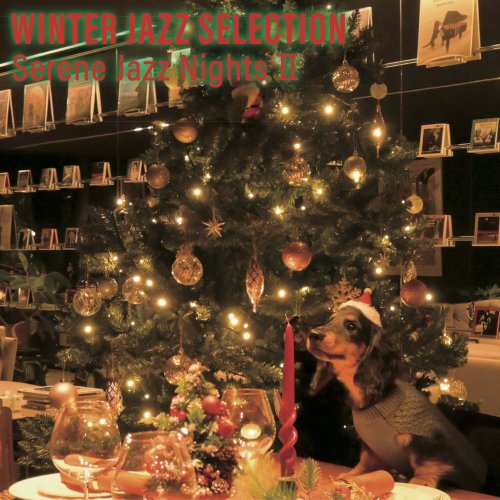

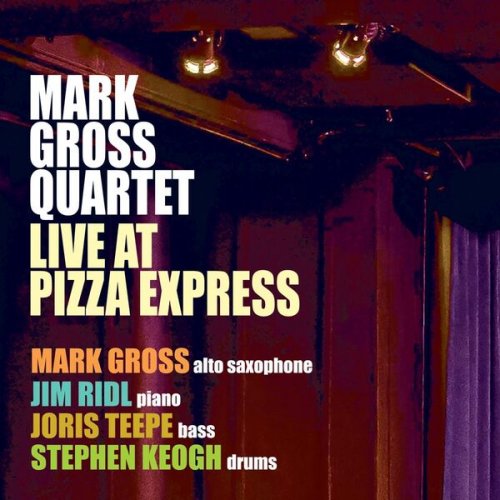
![Kenny Wheeler, Keith Jarrett, Dave Holland & Jack DeJohnette - Gnu High (1976/2025) [Hi-Res] Kenny Wheeler, Keith Jarrett, Dave Holland & Jack DeJohnette - Gnu High (1976/2025) [Hi-Res]](https://www.dibpic.com/uploads/posts/2025-12/1765627312_cover.jpg)
